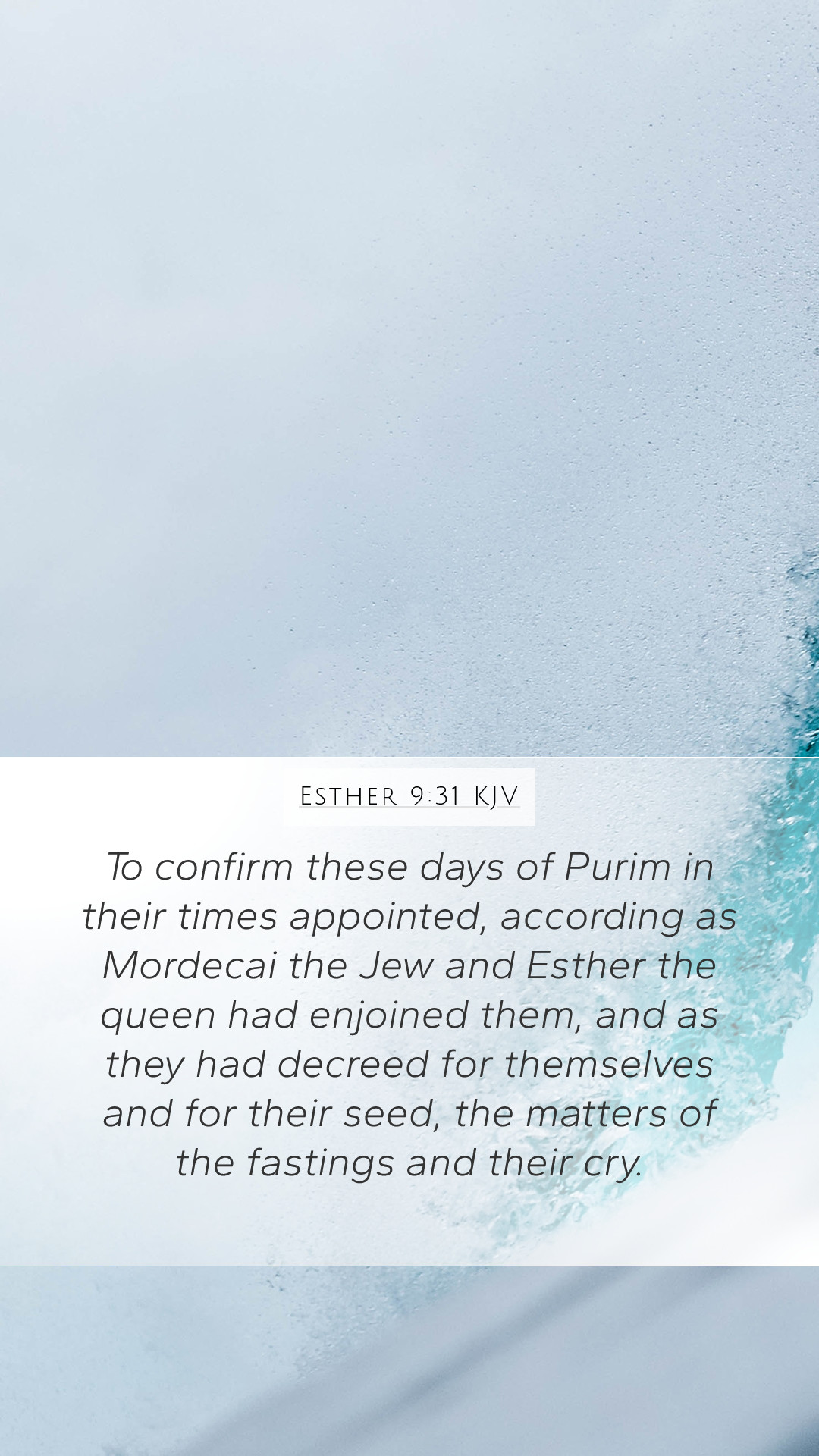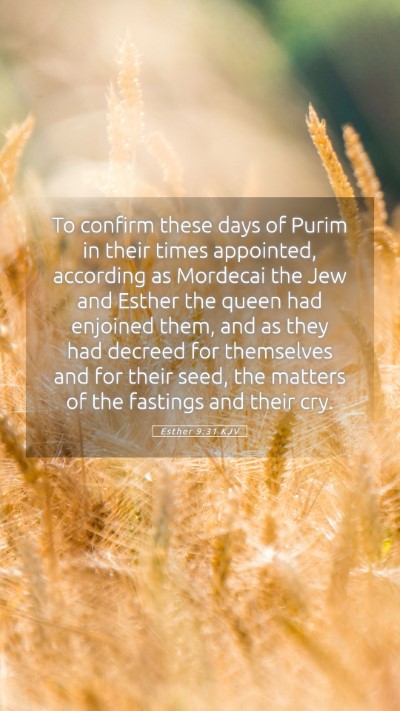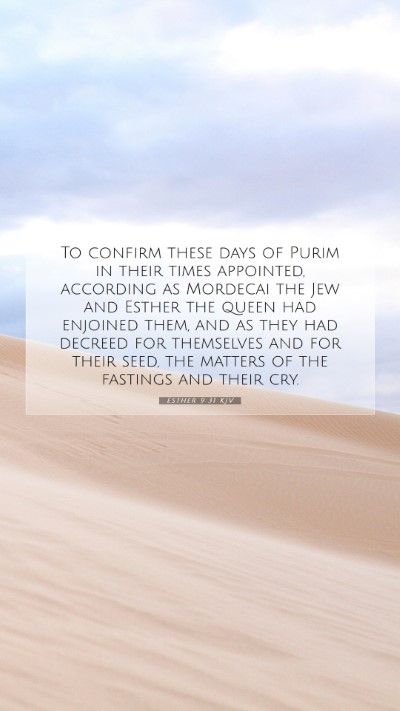Bible Verse Commentary on Esther 9:31
Esther 9:31 states: "To confirm these days of Purim in their times appointed, according as Mordecai the Jew and Esther the queen had enjoined them, and as they had decreed for themselves and for their seed, the matters of the fastings and their cry."
Bible Verse Meanings and Interpretations
This verse is pivotal in understanding the observance of Purim, a festival commemorating the deliverance of the Jewish people from the plot of Haman. The festivals' establishment and observance as described here underline the importance of remembrance and communal identity among the Jews.
Insights from Public Domain Commentaries
- Matthew Henry: Matthew Henry emphasizes the significance of established festivals in the Jewish tradition, explaining that it served as a divine reminder of God's intervention and protection. He notes that this observance was not merely a ritual but a heartfelt acknowledgment of God's providential care.
- Albert Barnes: Barnes comments on the role of Mordecai and Esther in this celebration. He points out that their leadership and spiritual resolve were instrumental in instituting these practices. According to Barnes, the verse illustrates the communal commitment to remembering God’s faithfulness and encourages ongoing generations to honor this divine deliverance.
- Adam Clarke: Clarke discusses the notion of "fastings and their cry," suggesting that this was a time of remembrance not only for celebration but also for reflection and repentance. The emphasis on instructing future generations highlights the necessity of passing down faith and traditions.
Understanding the Context
The context of Esther 9:31 is crucial in grasping its full meaning. Following the events of deliverance, the establishment of Purim represents a turning point for the Jewish community in Persia. It serves as an annual reminder of both peril and protection. This festival allows the Jewish people to reflect on their identity and God's ways.
Significance of Establishing Traditions
The verse underscores the importance of traditions in spiritual life. Establishing specific observances helps reinforce faith and collective memory among believers. As indicated in the commentaries, these practices were vital in keeping the community united and mindful of their spiritual heritage.
Application of Esther 9:31
For contemporary readers, Esther 9:31 prompts reflection on the meaning of traditions in their lives. It challenges individuals to consider how they remember and celebrate God’s acts in their own lives and communities. This can lead to deeper engagement in personal Bible study and communal worship.
Related Bible Cross References
- Esther 3:14: Discusses the establishment of a decree to annihilate the Jews.
- Esther 4:16: Esther’s call to prayer and fasting before approaching the king.
- Esther 10:3: Mordecai’s honor and his role in the Jewish person's salvation.
Bible Study Insights
This verse serves as an excellent topic for Bible study groups focusing on themes of deliverance and celebration of God's provision. Questions for discussion might include:
- How do we witness God’s providence in our lives today?
- What traditions do we uphold that remind us of God's faithfulness?
- How can we better incorporate community activities that foster spiritual reflection similar to Purim?
Conclusion
Ultimately, Esther 9:31 stands as a testament to the power of remembrance and community in faith. It shows how the celebrations of the past can inspire and guide current and future practices. The insights from the commentaries highlight the depth of Scripture analysis and reinforce the necessity of understanding Bible verse meanings in the life of a believer.


